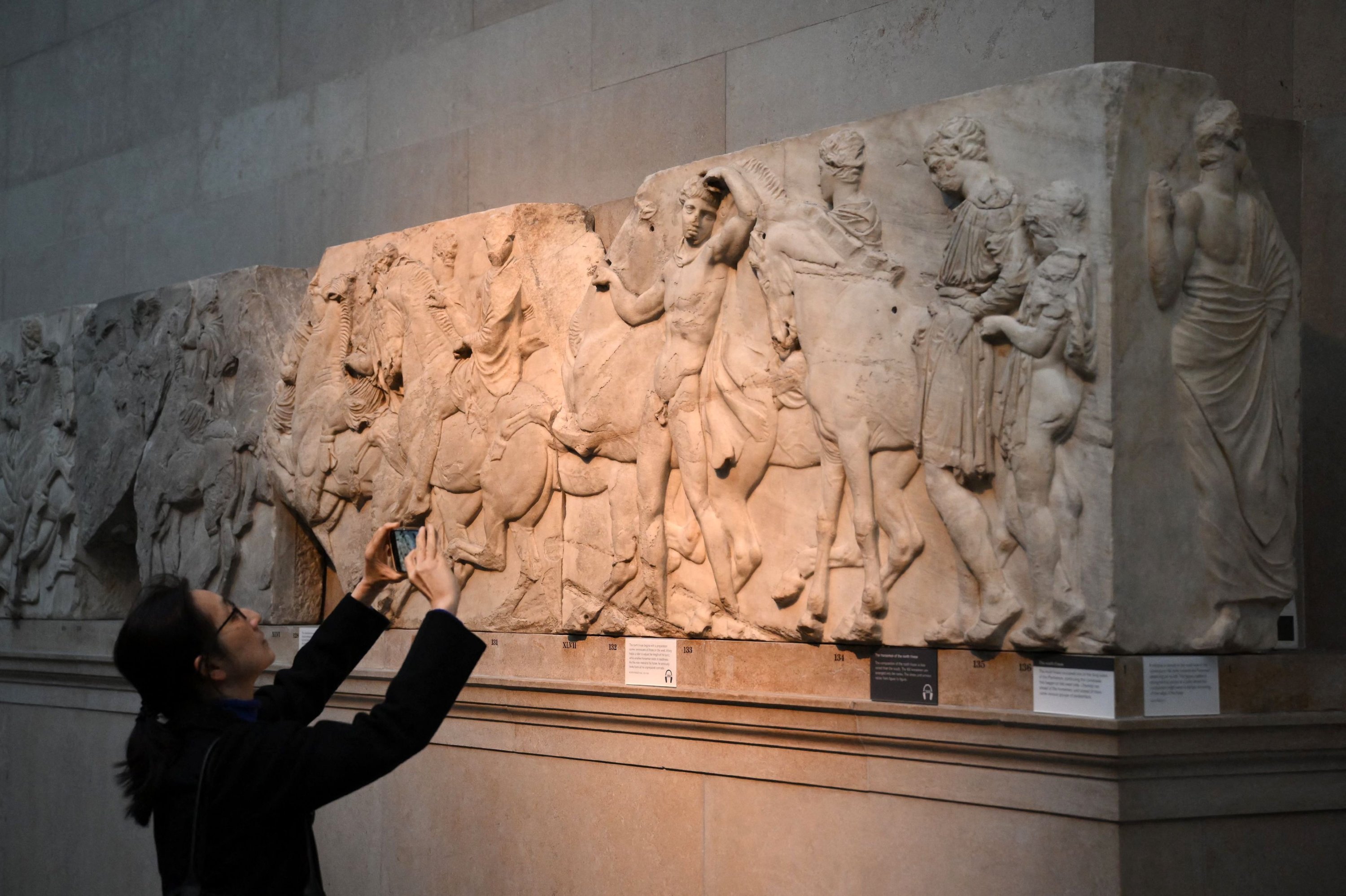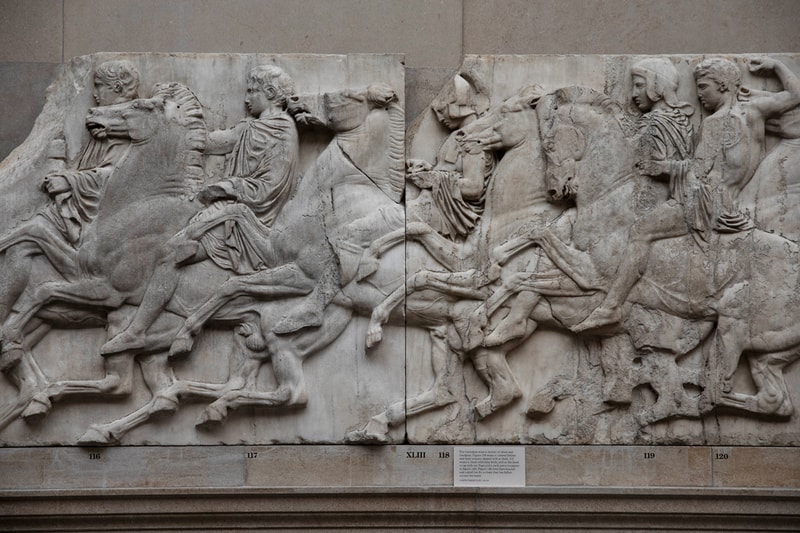The British culture minister ruled out the permanent return of the Parthenon Marbles to Greece, amid reports claiming a “cultural exchange” is almost agreed upon with Athens.

Minister Michelle Donelan told BBC radio a deal reportedly negotiated by the British Museum’s chairman, George Osborne, was not about the permanent return to Greece of the ancient sculptures.
That was “not his intention,” Donelan said referring to Osborne, a former finance minister under ex-prime minister David Cameron.
Such a move would “open a can of worms” and “open the gateway to the question of the entire contents of our museums”, she said.

The sculptures, also known as the Elgin Marbles, were taken from the Parthenon temple at the Acropolis in Athens in the early 19th century by British diplomat Thomas Bruce, the earl of Elgin.
Secret talks have reportedly been taking place between Osborne and Greek Prime Minister Kyriakos Mitsotakis for a year.
The reported deal, effectively a loan agreement, could see the 2,500-year-old antiquities returned “sooner rather than later”, the Daily Telegraph newspaper said earlier this month quoting sources.

Such an arrangement could circumvent a legal ban on the museum breaking up its vast collection.
“Museums are not able to give them (artifacts) back in law permanently, which I completely agree with,” Donelan told The News Agents podcast separately.
“A lot of people have spoken of 100-year loan, which I don’t think is in the spirit of the legislation at all,” she said, adding that this was not what Osborne was planning to do.

The U.K. did not want to give away items that had become “national assets… seen by people from all over the world” and which the country had taken “great care to preserve”, she added.
Taken by Elgin when he was the British ambassador to the Ottoman Empire, Greece maintains the marbles were stolen and has long campaigned for their return while the UK maintains they were legally obtained.
Their return remains a highly sensitive subject as the British Museum’s vast collection includes many items now considered by other countries as loot taken by builders of the British Empire and the government is wary of setting a precedent.